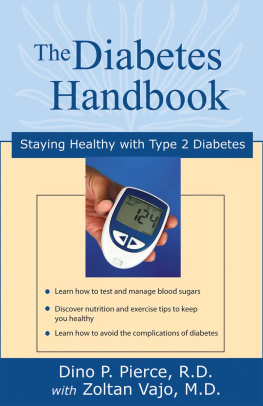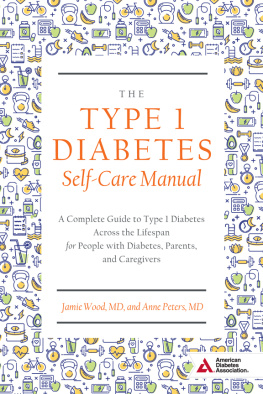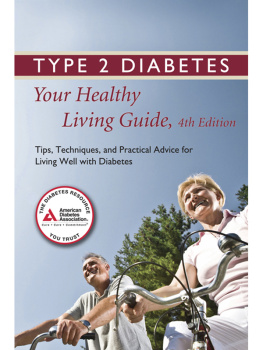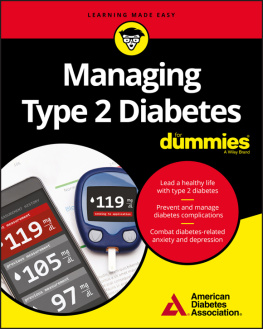
Copyright 2014 Kerri M. Sparling
All rights reserved under International and Pan American Copyright Conventions.
No part of this book may be reproduced or transmitted in any form or by any means electronic or mechanical including photocopying, recording, or by any information storage and retrieval system, without permission in writing from the publisher.
This edition is published by Spry Publishing LLC
2500 South State Street
Ann Arbor, MI 48104 USA
10 9 8 7 6 5 4 3 2 1
Library of Congress Control Number: 2013949026
E-book ISBN: 978-1-938170-38-6
Disclaimer: Spry Publishing LLC does not assume responsibility for the contents or opinions expressed herein. Although every precaution is taken to ensure that information is accurate as of the date of publication, differences of opinion exist. The opinions expressed herein are those of the author and do not necessarily reflect the views of the publisher. The information contained in this book is not intended to replace professional advisement of an individuals doctor prior to beginning or changing an individuals course of treatment.
for my littlest bird
Contents
When I was two years old, I tripped and fell, smashing my nose against the stone hearth that surrounded our fireplace. The blood! My little face! My parents freaking out! There were exclamation points everywhere, and, to this day, my nose still has a bit of a bump to it where the cartilage hit the stone.
I was so little that the memory is lost forever to me, but my parents remember it distinctly. Like so much of my early childhoodthe only years I have had without type 1 diabetesthese memories are caught in snapshots and half-fictionalized stories we repeat around the dinner table at holidays.
However, I do remember wetting the bed before my diagnosis. I was six years old and frustrated by my perceived lack of self-control. Mom, I cant stop! was my lament, and she shared my frustration because she couldnt help me stop. I have a very clear memory of walking downstairs to the living room where my parents were watching television and throwing my lovey blanket into the middle of the floor.
I cant stop peeing in my bed! But I can stop sucking my thumb, I said, jutting my chin out and making what has evolved into my stubborn fool face. Im DONE. (My parents remind me of this story every time I get my mind set on doing something new and frustratingly challenging. You always do what you can do, and what you cant control, you still try to control, they say. Im still not sure if this is a compliment.)
After the purchase of a system, worn in my underpants, that detected the presence of urine by announcing it with an alarm that pierced through the quiet night of our home and vaulted me from my bed, the nighttime accidents stopped almost entirely. But I was still up once or twice a night using the bathroom.
It was months later, during a before-school physical that included the standard pee-in-the-cup moment that our pediatrician, Dr. L, came out with a urine sample in his hand. Whose pee is this? he asked, pointing to the cup with the bright blue lid.
Thats Kerris, my mom said, assigning the sample as mine and not my brothers.
Its a little high in sugar. She needs to go to the hospital for blood work this afternoon, he indicated.
According to my mom, who remembers this day clearly while my memory is cluttered more with the clowns on the bathroom wallpaper in the office, there wasnt much explanation about the test or what it was for. The blood draw for a seven year old felt more acute and more dramatic than the vague high in sugar diagnosis it was confirming.
But then came the phone call and a conversation between my mom and the doctor. He told her that my blood sugar was 250 mg/dL and that I had juvenile diabetes. In a controlled panic, my mother was calling my father and saying that word againdiabetesand making arrangements to take me to Rhode Island Hospital the next day.
When I talked about my diagnosis with my mother over cups of tea years later, I asked her about how she felt upon receiving that call and being handed my diagnosis. She shared, I wasnt scared. I wasnt panicked. I knew that [our extended family friend] Eleanors son, Jim, had diabetes, but I didnt know what that meant or what it entailed. It wasnt me being tough, but more that I didnt know what we were getting in to. I just thought, Okay, lets go deal with this, whatever this is.
She continued, We were sent home with a urine testing kitdo you remember those test tubes and the little color-changing tabs wed drop in?
I did remember those. The test tubes would turn orange and get hot if my blood sugar was too high.
When the tubes stayed cool and the color was closer to blue, it meant good job! and that your urine didnt contain too much sugar. The thing is, home glucose meters existed when you were diagnosed, but we werent given one. And, for the first month, I was okay with the urine tests, because thats all I could handle at the time. It was so much to take in and so much to learn that adding in all the numbers was more than I could adjust to.
We eventually got a meter when we went to Joslin Diabetes Center for the first time about five weeks after you were diagnosed. For that first month, I had been adjusting to the needles and the insulin and the sliding scale of insulin doses, but I was starting to get frustrated at the imperfect science of urine testing. I was ready for more information, and thats when we went to Boston to see a pediatric endocrinologist.
When pressed to recall memories of my diagnosis, I have a hard time coming up with much. Most of my young life was a flurry of events and memories that I dont remember diabetes being a part of, even though I know it was there the whole time. Growing up, I didnt have a diabetes community to speak of, and for many years, my family and I dealt with diabetes on our own.
When my then-boyfriend/now-husband and I started dating, I mentioned to him that I didnt know anyone else who was living with diabetes. I had found plenty of people who died from it and grim accounts as to how and why by searching online, though.
Have you ever considered blogging? he asked, innocently. That very question is how I ended up sharing personal details about my chronic illness and its emotional and physical influence on my life on the Internet for the world to read.
In May of 2005, at the encouragement of my boyfriend, I started a blog in hopes of connecting with other adults who were living with type 1 diabetes and who were actually living. I knew there were complications that could arise as a result of this disease and I knew the day-to-day was challenging in its own way, but I was in search of people who were doing normal thingsdating, going on job interviews, having funwith type 1 diabetes as just part of the bigger equation.
A diabetes diagnosis is only the first of so many new normals. As a kid, my parents and I both needed to learn how to pinch hit for my busted pancreas, making sense of the new tools and new medications introduced into my young life. The point of all that excellent care and attention was to help me grow up and become an adult with a life of my own. Which, eerily enough, actually happened.
Now that I am an adult, I find a new version of normal to adjust to every few years. At first, I went to college and needed to find balance in being almost solely responsible for my own care, making sure my medical needs were met without my parents looking over my shoulder. Then, it became the new normal of life in my own apartment, without roommates, balancing blood sugar checks against nights out with my friends and keeping up with the constantly shifting sands of medical insurance and a real job. Now, as an adult with a family, Im trying to figure out how to keep my health afloat in the flow of life as a writer, a wife, and the mother of a little girl.
Next page










